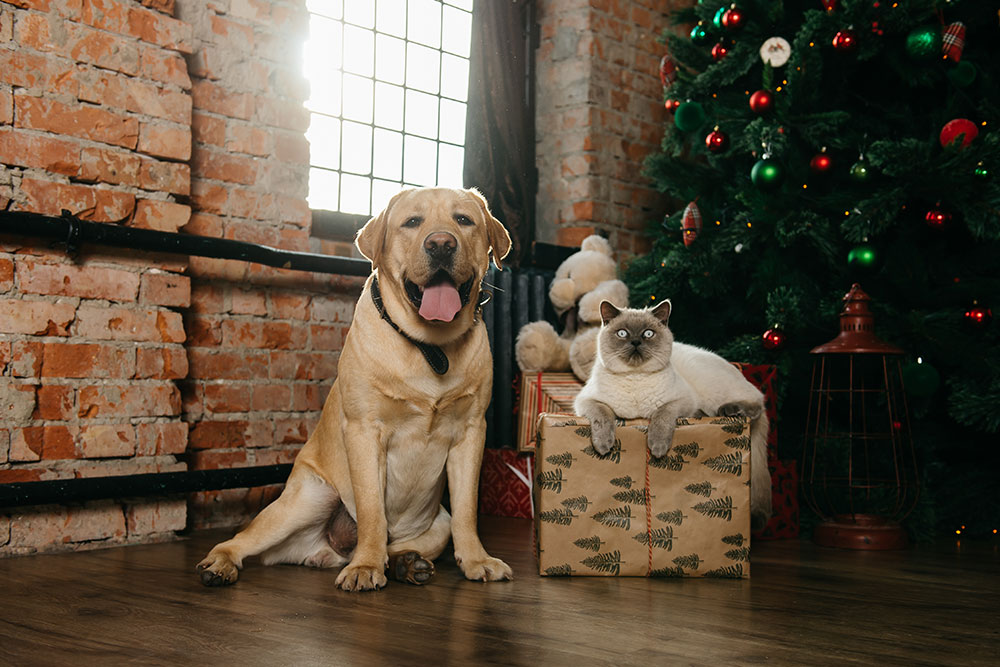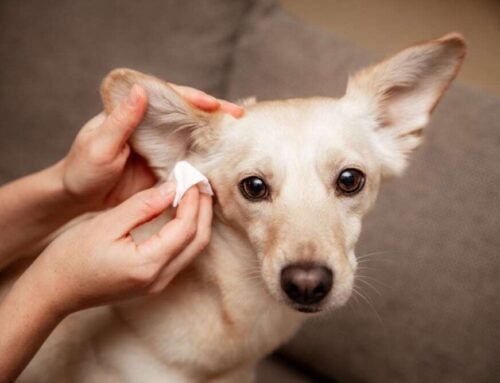Expanded Holiday Safety Tips for Pet Owners in Naples, Florida
The holiday season is a cherished time of celebration and togetherness. However, for pet owners, it also presents unique challenges and potential hazards. At Animal Medical Hospital of Naples, we are dedicated to ensuring the safety and well-being of your pets during this festive period. This comprehensive guide aims to provide pet owners with detailed insights into the risks associated with the holiday season, recognizing signs of distress, and implementing effective preventive measures.
Understanding the Risks: A Medical Perspective
Toxic Plants and Foods
Toxic Plants: Many popular holiday plants such as poinsettias, holly, and mistletoe, although beautiful, are toxic to pets. These plants can cause symptoms ranging from mild irritation to severe digestive and cardiovascular issues. Ingesting poinsettias typically results in mild gastrointestinal upset, but mistletoe can lead to more serious symptoms such as cardiovascular collapse.
Hazardous Foods: Chocolate, grapes, raisins, and foods containing xylitol are dangerous for pets. Chocolate contains theobromine, which is toxic to dogs and cats and can cause vomiting, diarrhea, and, in severe cases, seizures or cardiac arrest. Xylitol, a common sugar substitute, can lead to rapid insulin release and result in hypoglycemia, liver failure, or even death in dogs. Grapes and raisins can cause acute kidney failure, which may not be immediately obvious but can lead to dire consequences if left untreated.
Decorations and Electrical Hazards
Decorative items like tinsel, string lights, and ornaments pose a risk if ingested or chewed. Ingestion of foreign objects like tinsel can lead to intestinal blockages, requiring surgical intervention. Electrical cords, if chewed, can cause life-threatening electrical shocks, burns, or even death.
Stress and Behavioral Changes
The hustle and bustle of holiday gatherings can be overwhelming for pets. Stress can manifest as behavioral changes, such as aggression, withdrawal, or excessive vocalization. Stress-induced behaviors might also include inappropriate urination or defecation, destructive chewing, or increased vocalization.
Recognizing Symptoms and Diagnosing Issues
Symptoms to Monitor
Be vigilant for symptoms such as vomiting, diarrhea, lethargy, or sudden behavioral changes, which could indicate ingestion of a toxic substance or stress. Early detection is crucial. For example, symptoms of chocolate toxicity can start with vomiting and progress to more serious signs like seizures.
Diagnosis and Treatment
Diagnosis: If you suspect your pet has ingested a harmful substance, a veterinarian will perform a physical exam and may recommend blood tests, urine tests, or imaging (like X-rays) to evaluate the extent of the issue.
Treatment: The treatment will depend on the substance ingested. Activated charcoal may be administered to prevent further absorption of toxins, and intravenous fluids can be used to support hydration and kidney function. In cases of foreign body ingestion, surgery might be necessary to remove obstructions.
Prevention Strategies for Pet Owners
Creating a Safe Home Environment
- Secure the Christmas Tree: Anchor your tree to prevent it from toppling. Consider using a pet-proof barrier to keep pets away from the tree and decorations.
- Choose Pet-Safe Decor: Opt for shatterproof ornaments and avoid tinsel. Ensure any lights are secured and cords are out of reach.
- Keep Food Out of Reach: Place all holiday treats, especially chocolate and candy, in secure locations inaccessible to pets.

Reducing Stress and Providing Comfort
- Designate a Quiet Space: Allocate a quiet room where your pet can retreat from noise and crowds. Provide familiar items like their favorite bed or toys to offer comfort.
- Regular Routine: Maintain your pet’s regular feeding and exercise schedule as much as possible to reduce stress.
Emergency Preparedness and Response
What an Emergency Looks Like
An emergency might involve your pet displaying severe symptoms such as uncontrollable vomiting, difficulty breathing, or seizures. If you suspect your pet has ingested a toxic substance, remain calm and act quickly.
Immediate Steps to Take
- Remove the Pet from the Source: Keep them away from any remaining toxic substances.
- Do Not Induce Vomiting: Unless specifically advised by a veterinarian, avoid inducing vomiting, as this can sometimes worsen the situation.
- Contact Veterinary Services: Reach out to Animal Medical Hospital of Naples or the nearest emergency veterinary clinic for immediate guidance.
Regular Veterinary Care
Regular check-ups can identify potential health issues before they become emergencies. During these visits, discuss holiday-specific risks and preventive measures with your veterinarian.
Ensuring a safe and joyful holiday season for your pets requires proactive planning and vigilance. By understanding potential hazards, recognizing symptoms of distress, and knowing how to respond in an emergency, you can significantly reduce the risks to your pets. The team at Animal Medical Hospital of Naples is here to support you with expert guidance and care whenever needed.
For further reading and detailed guidelines, consider visiting resources such as the ASPCA’s Holiday Safety Tips and the American Veterinary Medical Association’s Holiday Pet Safety.






Leave A Comment